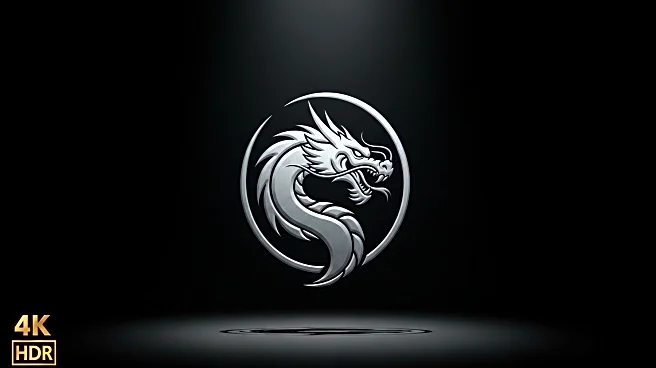What's Happening?
During a panel at the New York Comic Con, screenwriter Jeremy Slater announced that he is currently working on the script for Mortal Kombat III. This announcement follows the success of Mortal Kombat II, which is set to release on May 16, 2026, after being delayed from its original fall 2025 date. Slater expressed that New Line Cinema and Warner Bros. are enthusiastic about the franchise's potential, leading to the decision to proceed with a third installment. The panel also featured a behind-the-scenes featurette and a preview of a fight scene from Mortal Kombat II, showcasing characters like Johnny Cage and Baraka.
Why It's Important?
The development of Mortal Kombat III signifies the growing popularity and commercial success of the Mortal Kombat film franchise. This expansion could have significant implications for the entertainment industry, particularly in the realm of video game adaptations. The franchise's ability to attract a large fanbase and generate excitement suggests potential for further sequels and spin-offs, impacting box office revenues and studio strategies. The involvement of major studios like New Line Cinema and Warner Bros. highlights the importance of video game-based films in their portfolios.
What's Next?
With Mortal Kombat II set to release in May 2026, the focus will be on its box office performance and audience reception. Positive outcomes could accelerate the production timeline for Mortal Kombat III. Additionally, the franchise's success may encourage other studios to invest in similar adaptations, potentially leading to a surge in video game-based movies. Fans can expect more updates and promotional content as the release date approaches, including trailers and cast interviews.
Beyond the Headlines
The Mortal Kombat franchise's expansion raises questions about the cultural impact of video game adaptations. As these films gain popularity, they may influence perceptions of gaming culture and its integration into mainstream entertainment. The success of Mortal Kombat could also inspire discussions about the representation of diverse characters and narratives in Hollywood, potentially leading to more inclusive storytelling.









